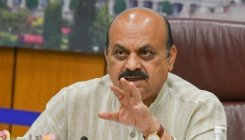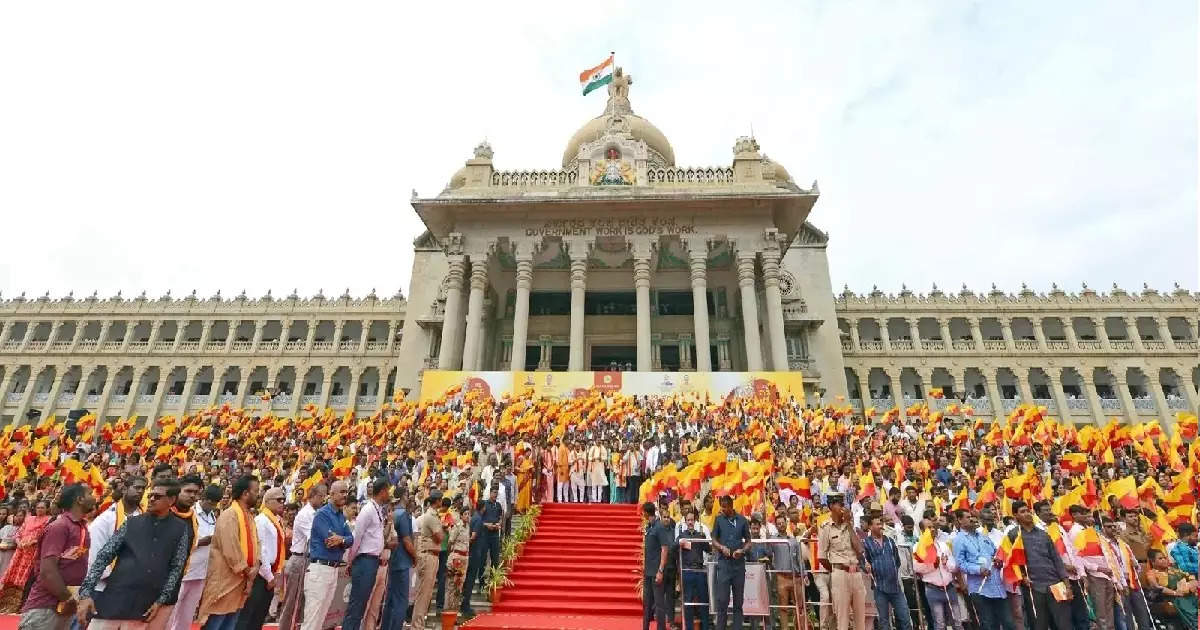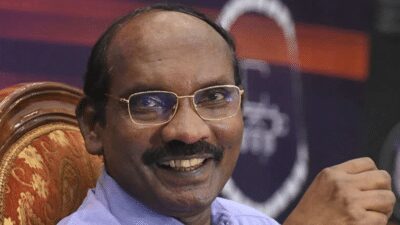Kailasavadivoo Sivan, the “rocket man” of India and former head of the Indian Space Research Organization (ISRO), is one of the 67 recipients of the Kannada Rajyotsava award this year. A gold medal, citation, and a monetary prize of Rs. 1 lakh are included with the honor, which will be presented on November 1.
On April 14, 1957, K Sivan was born in Tamil Nadu to a substandard farming family. His perseverance allowed him to overcome all challenges and earn a BSc in Mathematics from Madurai University in 1977. Due to the family’s financial predicament, three of Sivan’s siblings were unable to finish their further education. Sivan earned a perfect score on his BSc in Mathematics exam, which qualified him to continue his education.
After earning his B-Tech in Aeronautics from the Madras Institute of Technology, Sivan obtained his ME in Aerospace from IISC Bengaluru in 1982. The next year, he started working for the ISRO as a junior space scientist. Sivan earned a Ph.D. in aerospace from IIT Bombay in 2007 while working for ISRO.
On January 15, 2018, Sivan succeeded AS Kiran Kumar as the ISRO Chief, 36 years after first working for the organization. Sivan had previously held important positions with organizations like the Liquid Propulsions Systems Center (Director, 2014–2015), the Vikram Sarabhai Space Center (Director, 2015–2017), and the Space Commission (2016-2017).

From January 2018 to January 2022, Sivan oversaw ISRO, a period that included the launch of Chandrayaan-2, a lunar mission. After over 36 years of service, Sivan became the chairman of ISRO in 2018. He joined ISRO in 1982. After four years, he turned over the reins to S Somanath as chairman, and K Sivan stepped down as ISRO director on January 14, 2022. During his leadership, ISRO expanded quickly and India’s name became well-known in the field of space technology. The way the world views India and what the nation’s space sector is capable of was greatly influenced by Sivan.
The government, which announced the list of winners, said it has decided to honor the dignitaries as the state celebrates the 67th Kannada Rajyotsava (state formation day) this year on November 1 in keeping with the tradition of presenting the Rajyotsava Award every year to eminent individuals who have provided noteworthy service in a variety of fields.
Kannada and Culture Minister V Sunil Kumar said that the department and the selection committee have labored through a challenging assignment in an endeavor to find the talents who have been working without any suitable acknowledgment and honor them together with other famous performers.
He said that while identifying the achievers, efforts had been made to maintain regional balance, and the Chief Minister had given his approval to the list “The intriguing aspect of the Rajyotsava Award this time is that it went in search of real achievers because some of them didn’t even have photos to share with us. It suggests that they worked quietly and without expecting to be noticed.”
Award-winning individuals include Soligara Madamma, who encouraged the Soliga community to form cooperatives, Saalumarada Ninganna (an environmentalist), Yakshagana artist Dr. M. Prabhakar Joshi, retired IAS officer Madan Gopal, authors A. R. Mitra and professor Krishnegowda, and swimmer Raghavendra Anvekar with special needs, among others.
Achievements and noteworthy work

K Sivan’s leadership enabled ISRO to develop NavIC (Navigation with Indian Constellation), the country’s first indigenous navigation system, in 2016. NavIC is similar to the GPS system.
The four successful launches of India’s largest operational launch vehicle, the GSLV Mk II (Geosynchronous Satellite Launch Vehicle Mark II), were also carried out by Sivan. Sivan served as the project director for these missions, which were created, created, and operated by ISRO to launch satellites and other space objects into the Lower Earth Orbit (LEO).
Under Sivan’s direction, the Gaganyaan Programme was approved, opening up a new area of human spaceflight under ISRO’s purview of operations. From 2016 until 2021, K Sivan served as the chief architect of ISRO’s space transportation program, and it was under his direction that the SCRAMJET engine’s successful flight test was achieved.
The Mars Orbiter Mission (MOM) launch was a huge success thanks to Sivan’s economical approach. When ISRO successfully launched as many as 104 constellation satellites during a single mission, breaking the previous record, he served as the main mission architect.
Under his direction, the Chandrayaan-2, India’s second lunar mission, was also successfully launched from the Satish Dhawan Space Centre in Andhra Pradesh’s Sriharikota. Sivan has made contributions to the development of medical tools like the Left Ventricle Assist Device, an advanced microprocessor artificial limb, in addition to space technology.













